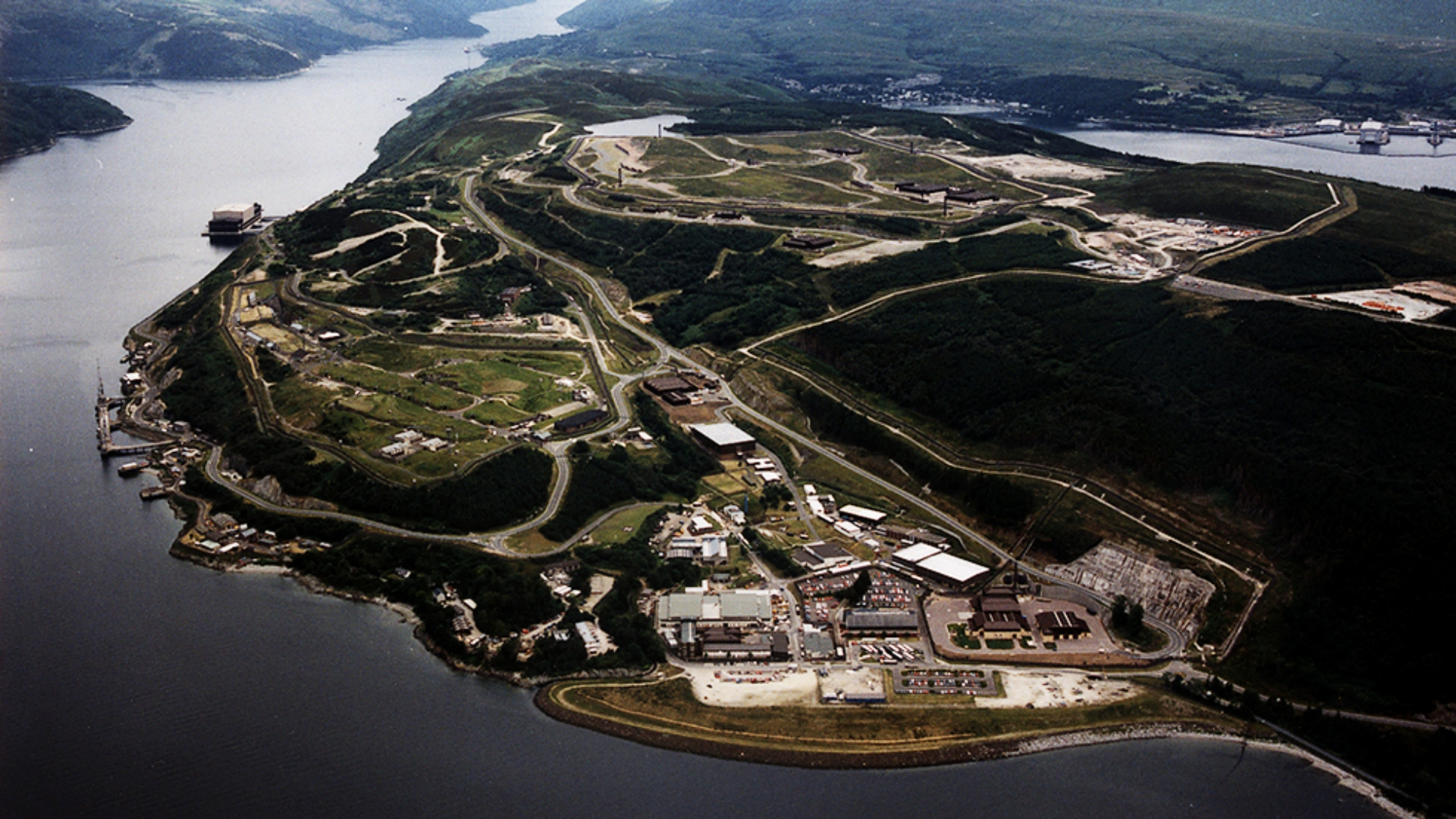Calls to suspend UK trade talks and arms sales to Israel have been renewed after the International Criminal Court announced that it is seeking arrest warrants for Israel’s Prime Minister Benjamin Netanyahu and its Defence Minister Yoav Gallant, as well as the leaders of Hamas, over alleged violations of international law.
The ICC alleges that Netanyahu and Gallant bear criminal responsibility for war crimes and crimes against humanity in Gaza in its response to the 7 October Hamas terror attacks last year.
They are accused of using starvation of civilians as a method of warfare – a war crime under the Rome Statute of the International Criminal Court, which came into force in 2002.
They are also accused of “wilfully” causing great suffering, serious injury, and cruel treatment, which are classified as war crimes.
If arrest warrants are issued, Netanyahu and Gallant, along with the three senior Hamas individuals also charged by the Office of the Prosecutor (OTP), would be active in the 124 countries that are parties to the Rome Statute – including the UK. That means that UK police would have an obligation to arrest those individuals if they travelled to the country.
The UK Government has said it does “not think the ICC has jurisdiction in this case”.
The ICC charges include wilful killing and murder as war crimes, with specific reference to attacks on Gaza’s civilian population.
The allegations also state that Netanyahu and Gallant intentionally directed attacks against civilians, violating multiple articles of the Rome Statute.
And the court contends that Israel systematically deprived Gaza’s civilian population of essential supplies and services, including food, water, and electricity, as part of a siege strategy.
The actions are described as part of a “widespread and systematic attack” against Palestinian civilians, aiming to eliminate Hamas, secure hostage returns, and “collectively punish” Gaza’s population.
“These crimes, in our assessment, continue to this day,” the prosecutors argue.
The effects of Israel blockading Gaza and closing border crossings for aid include severe malnutrition, dehydration, and increasing deaths, with famine present in some areas and imminent in others, they allege.
Hamas leaders are accused of attempting “extermination” as a crime against humanity, and using murder as a crime against humanity.
Three Hamas figures are accused of leading the terrorist group’s efforts to take hostages and use rape and other acts of sexual violence, as well as torture, as crimes against humanity, among other charges.
Growing university protests here mirror US occupations against Israel’s invasion, as institutions are accused of profiting from the Gaza war
Josiah Mortimer
UK Arms Sales Continue
The UK Government has granted licences for the sale of British weapons to Israel under a wide range of categories in recent years, according to the Global Legal Action Network. Since 2015, there has been £472 million in limited value ‘standard’ licence grants, and 58 unlimited value ‘open’ licences.
This includes sales of body armour, military communications equipment, military electronic equipment, components for military radars and targeting equipment, components for military aircraft displays and unmanned air vehicles, components for military support and combat aircraft, naval vessel components, and much more.
“Given that these items are all capable of being used in Israel’s actions against Palestinians, many of which are criminal acts under international criminal law, there is plainly a ‘clear risk’… meaning the Government should not be issuing these licences” under its own rules, a spokesperson for the Global Legal Action Network said in November.
However, since then, the UK Government body responsible for decisions on arms exports has refused to change its rules on sending military gear to Israel.
The Scottish National Party’s Westminster Leader Stephen Flynn MP said: “This is a deeply serious development that once again pulls into sharp focus the full extent of the horrors committed by Hamas, as well as the grotesque and deadly Israeli Government response.
“Both the UK Government and the Labour Party must stand by international law and, whilst this application for an arrest warrant is determined, confirm that they will both fully support the final determination that is made by the court.
“In the meantime, the supply of arms to Israel must be halted and an immediate ceasefire demanded. Westminster’s equivocation has left it complicit in the deaths of thousands of civilians and the collective punishment of the Palestinian people must now stop.”
EXCLUSIVE
The new ‘Assemble’ movement plans to back left-wing candidates running against Keir Starmer’s party, Byline Times can reveal
Josiah Mortimer
The SNP has previously attempted to table a motion to force the UK Government to immediately end arms sales to Israel, but the move was blocked.
A letter signed by 134 MPs and Lords from across the political spectrum earlier this month called on the Foreign Secretary and Business Secretary to “immediately suspend export licenses for arms transfers to Israel”.
An Israeli official told The Times of Israel that ICC chief Karim Khan’s statement was a “baseless blood libel against Israel” that “crossed a red line in his lawfare efforts against the lone Jewish state and the only democracy in the Middle East”.
Foreign Office in Firing Line
But a UK-based non-profit consisting of lawyers and campaigners, the International Centre of Justice for Palestinians, welcomed the move.
Representatives had submitted evidence to the ICC, collected from “first-hand eyewitnesses including from a significant number of medical professionals who have been in Gaza since October”, according to the group.
It said its investigation team included former British police detectives, who collected the evidence to British police force standards.
The ruling came amid reports that there were threats and attempts to undermine the independence and impartiality of the ICC – cited in the organisation’s statement today.
The International Centre of Justice for Palestinians says that the Foreign, Commonwealth and Development Office must now take “clear action to protect the rules-based international order by supporting the ICC’s move”.
Labour’s triumph was almost entirely due to a collapse in Conservative support. To succeed in the General Election it must directly engage with a new generation of British Muslim voters
Hasan Patel and Scott Lucas
“FCDO must ensure with all certainty that it is in no way complicit with the current Israeli Government, especially now that the war crimes of its leadership have been made more explicit than ever,” a spokesperson said.
Tayab Ali, director of the International Centre of Justice for Palestinians, added: “Whilst many doubted the ICC would apply for arrest warrants for Israeli suspected war criminals, we did not.
“Any independent analysis of the evidence will result in an overwhelming appreciation that Israel has engaged in the most serious of war crimes. It was on this analysis that we based our view and trust in the ICC that it would live up to its mandate.
“But now, finally, the ICC has taken the first step to break impunity and hold Israeli politicians and military personnel accountable.
“We will continue to provide the ICC with credible evidence of war crimes and work with the international community to guard the ICC against unlawful interference with its proceedings. There is still a long road ahead before we can say that justice has been done.”
Conservative Ministers Andrew Mitchell MP and Alan Mak MP are set to be questioned by the cross-party Business and Trade Committee on Government policy on UK arms exports to Israel tomorrow.
The committee is likely to ask about the scale of UK military and ‘dual-use’ (civilian and military) exports to the country, and whether they remain confident that licencing decisions remain compliant with domestic and international law.
The UK is still engaged in ongoing trade talks for a possible trade deal with Israel, Rishi Sunak’s spokesman confirmed to journalists in recent weeks.
A Government spokesperson said: “We do not believe that seeking warrants will help get hostages out, get aid in, or deliver a sustainable ceasefire. This remains the UK’s priority.
“As we have said from the outset, we do not think the ICC has jurisdiction in this case. The UK has not recognised Palestine as a state, and Israel is not a state party to the Rome Statute.”











